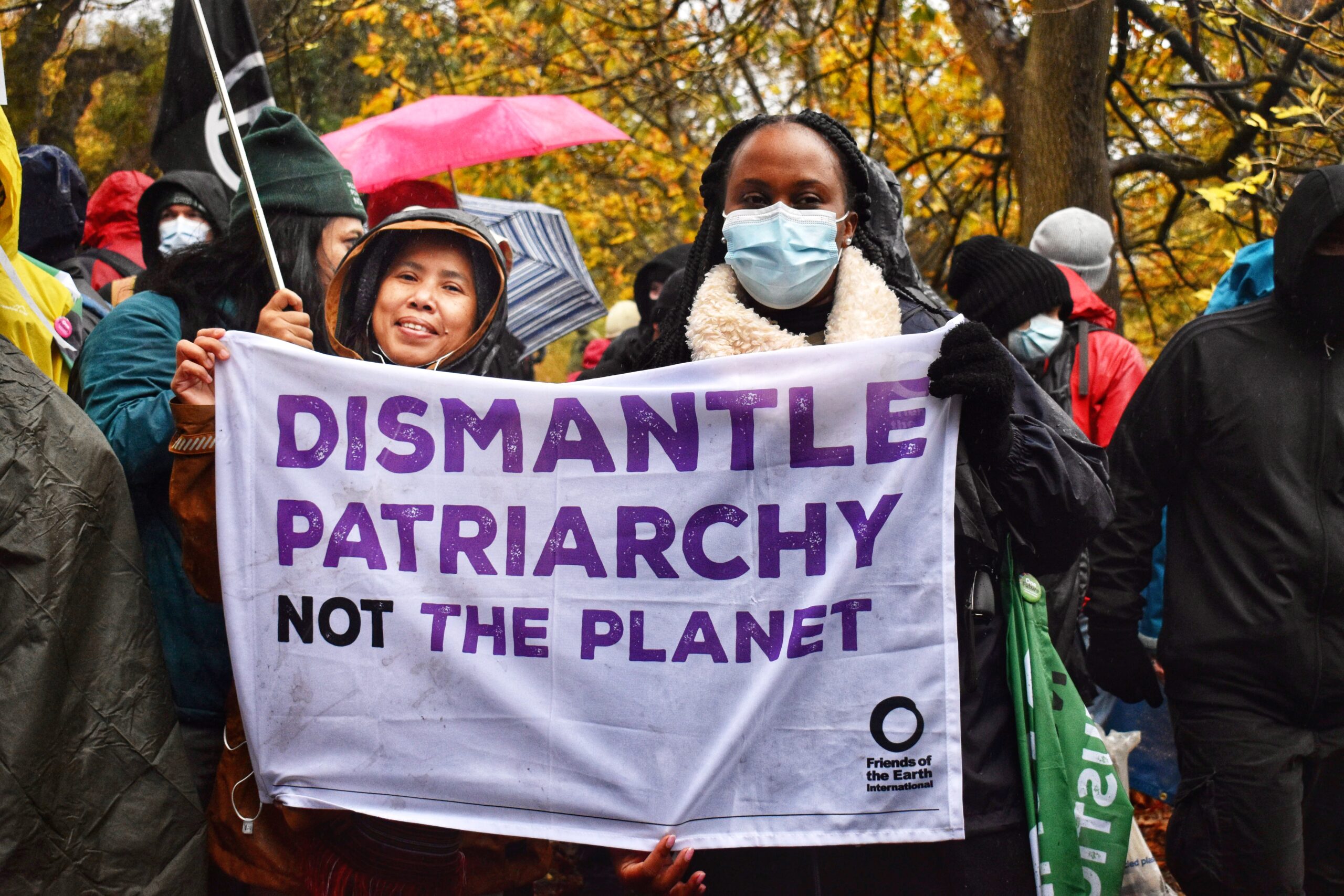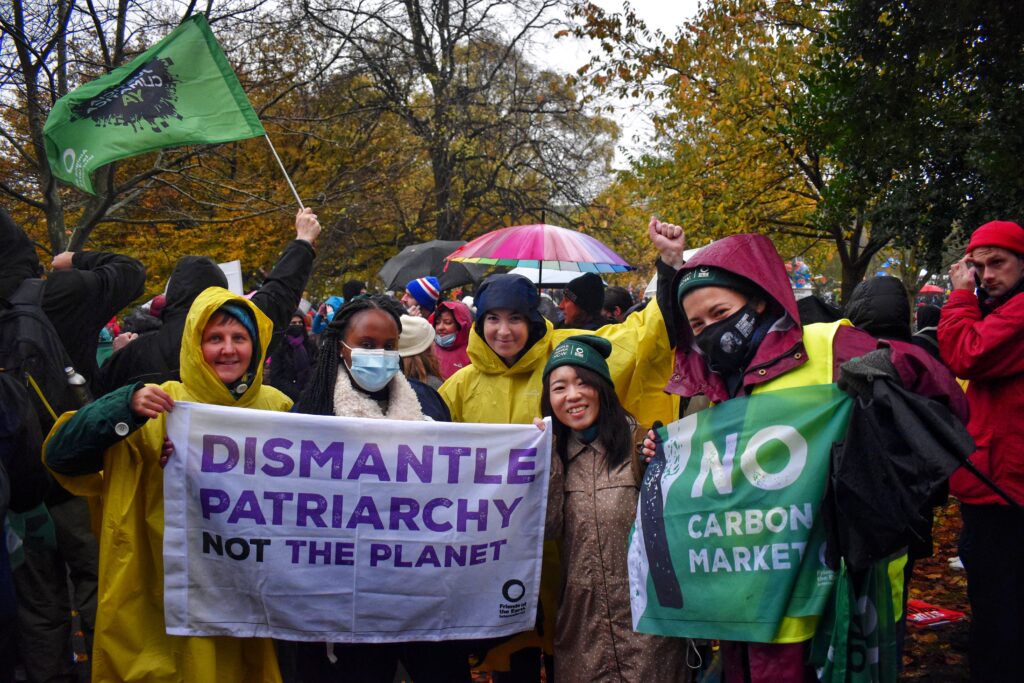
Feminist solutions to the climate crisis
Climate justice means recognising that the people who’ve done the least to cause the climate crisis are bearing the brunt of its impacts, while those who have contributed the most are less affected. We need feminist solutions to the climate crisis as part of this.
Around the world, women and marginalised genders are more impacted by climate breakdown. The same systems that are bad for the planet are hurting women.

Women are – an almost unbelievable – 14 times more likely to die from climate induced disaster. When floods, fires, and storms hit, women are more likely to be constrained by caring responsibilities and so are slower to get themselves to safety. They might be constrained in a physical way, with women in some areas of the world being more likely to be wearing restrictive clothing. They might be constrained by a lack of rights, or risk of violence. Disasters can prevent people accessing adequate healthcare, which can be fatal for women giving birth in the midst of such a crisis.
Climate change intensifies existing inequalities in society, but the inverse of this is that tackling one means tackling the other.
When thinking about how to make changes to our society to reduce the damage being caused to the planet, we need to think about this in a way that is socially just.
Women and transport
In Scotland, women make up the majority of public transport users and the minority of drivers and cyclists. Even so, our buses and trains are less usable for people working unusual hours around caring responsibilities, which is more often women.
In most of Scotland, with the exception of Edinburgh, buses are run by private companies who pick and choose routes that they can make the most money on. This can leave the lesser used, but still crucial, routes being cut. It also leads to more expensive fares, which impacts women more who still face a 10.4% pay gap in Scotland and even more than this for disabled women and women of colour.
If public transport was run as a public service, decisions could be made based on what communities need rather than what makes the most money. This would mean that more people would be able to get around without cars – great for the planet, and reducing the inequalities women face in the transport system.
Good green jobs
It’s essential that we move away from oil and gas in Scotland. With the right support and investment, decent green jobs can be created and we can start to properly value the green jobs that already exist in our society.
The care economy is one such low carbon sector with jobs that are primarily held by women. Jobs in this industry are often low paid and with poor conditions. The union Unite has highlighted the shocking living standards of care staff – they found that more than half of people working in care run out of money before their next pay day, 1 in 5 avoid using gas or electricity at home and many skip meals.
Investment in the care sector could improve the lives of women who are already working in this area, and create more jobs as they are being reduced in high carbon industries.
The Women’s Budget Group found that the average job in health and care produced nearly 1,500 times fewer climate emissions than a job in oil and gas.
An economy focused on wellbeing
Our current level of consumption is destroying the planet and causing human rights abuses around the world. The economic goal of increasing profits by always selling more is only benefiting people at the very top. Meanwhile women are disproportionately underpaid, stereotyped into work that is undervalued, and often face discrimination when pregnant and returning from maternity leave.
There are some interesting studies on the increased impact of chemicals in plastics on women. Women have different susceptibilities to exposure to hazardous chemicals but gender differences are not always accounted for in analysing the harm of chemicals in plastics. This means women’s health and safety risks from plastic exposure are often under-estimated, particularly in plastics production, consumer products targeting women and professions dominated by women which have high plastic exposure (e.g. care).
The impact on women in our international supply chains is also often under-estimated.
Research indicates that women and girls are disproportionately impacted by extraction work, including increased unpaid care work, loss of productive land, exposure to STDs and gender-based violence.
A shift to our economy is needed to reduce the destruction being caused to the environment and the injustice being faced by women. For this shift to happen, there needs to be changes made to all areas of our economy – from improving public services, to ensuring basic income for everyone, to supporting reduce and repair organisations.
Women’s voices need to be listened to
How do we move forward in tackling the climate crisis in a feminist way?
The key thing is to involve women in every stage of the transition. We need to hear about the problems women are facing, both in Scotland and around the world, and what solutions would work for them.
The transition to a better society must be led by the people and communities that are affected by it. Women need to be at the heart of it.
